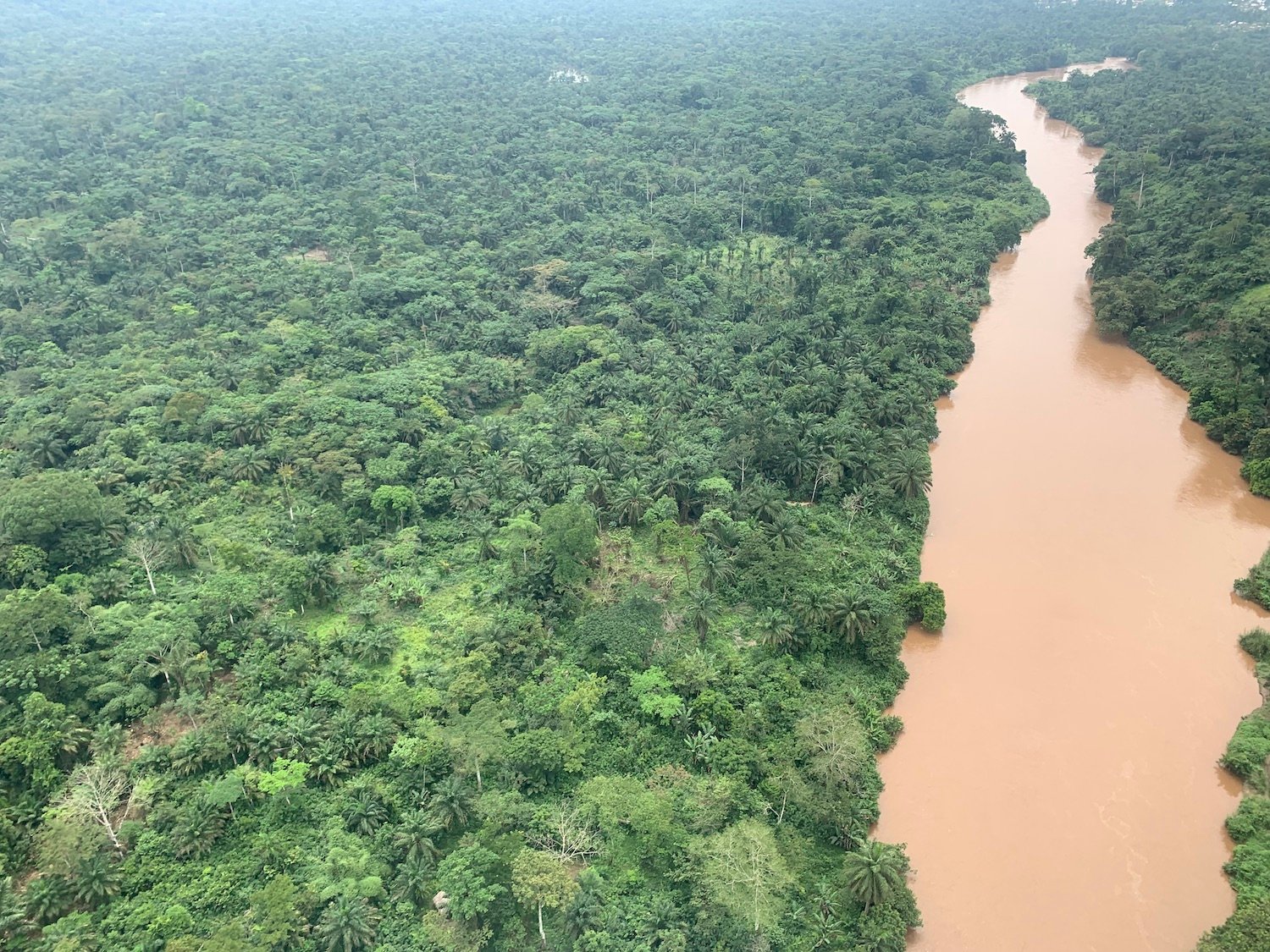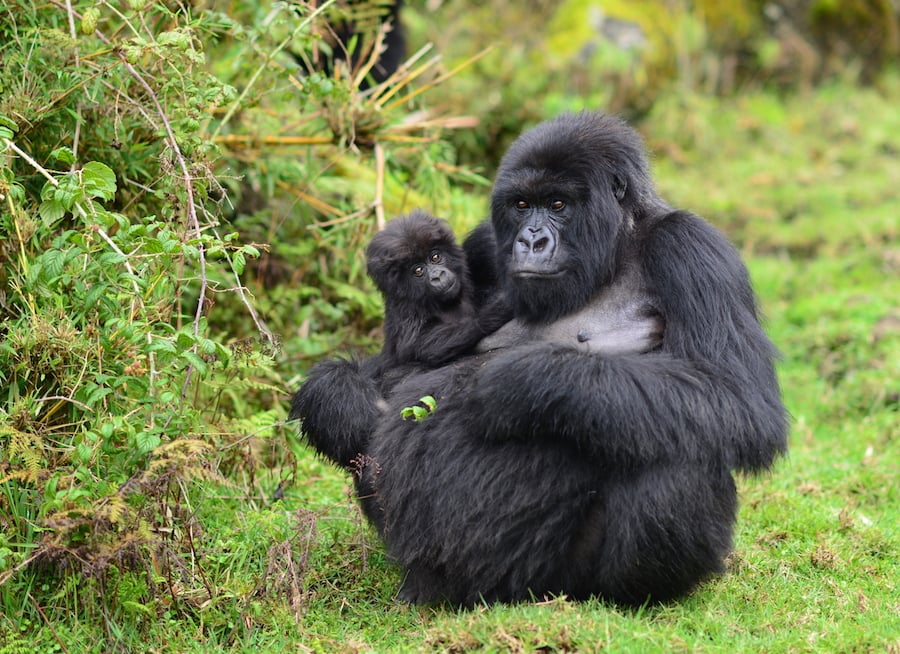February 2008
New Rwandan Research Assistants Now Studying Gorillas
At the end of the 2007, two Rwandan research assistants were hired by DFGFI to help with our long-term gorilla behavior and demographic data collection at Karisoke. Leonard Seburanga and Djuma Nsanzimana were selected from a long list of applicants, based on their capabilities and interest in the conservation of the natural environment of Rwanda. Data collection in gorilla behavior requires intensive training in the methodologies used, as well as gorilla ecology, individual identification, and most importantly, the ability to work with field staff as we observe the gorillas in the forest.
 Karisoke Research Center currently monitors 120 gorillas, now split into numerous groups. In order to be ready for the data collection, our research assistants must be able to identify all of the gorillas. We memorize their unique facial characteristics using their “nose prints,” which are close-up photos of that area of the face (a technique started by Dian Fossey decades ago). These “nose prints” have to be memorized by all field staff. Leonard and Djuma are now also studying all the individuals group by group, trying to learn the complexity of the gorilla family histories, hierarchies, transfers and demographic changes over the past 40 years.
Karisoke Research Center currently monitors 120 gorillas, now split into numerous groups. In order to be ready for the data collection, our research assistants must be able to identify all of the gorillas. We memorize their unique facial characteristics using their “nose prints,” which are close-up photos of that area of the face (a technique started by Dian Fossey decades ago). These “nose prints” have to be memorized by all field staff. Leonard and Djuma are now also studying all the individuals group by group, trying to learn the complexity of the gorilla family histories, hierarchies, transfers and demographic changes over the past 40 years.
 All this knowledge is necessary to understand the complex relationships among the gorillas, for accurate behavioral data collection. Leonard and Djuma are also practicing in the field, working with experienced trackers and researchers. These new research assistants will soon contribute to the long-term research carried out at Karisoke Research Center over the past 40 years, the result of the hard work of many researchers and field staff, who with their enthusiasm and passion for this endangered species are critical to gorilla protection and scientific knowledge.
All this knowledge is necessary to understand the complex relationships among the gorillas, for accurate behavioral data collection. Leonard and Djuma are also practicing in the field, working with experienced trackers and researchers. These new research assistants will soon contribute to the long-term research carried out at Karisoke Research Center over the past 40 years, the result of the hard work of many researchers and field staff, who with their enthusiasm and passion for this endangered species are critical to gorilla protection and scientific knowledge.
Submitted by Veronica Vecellio






